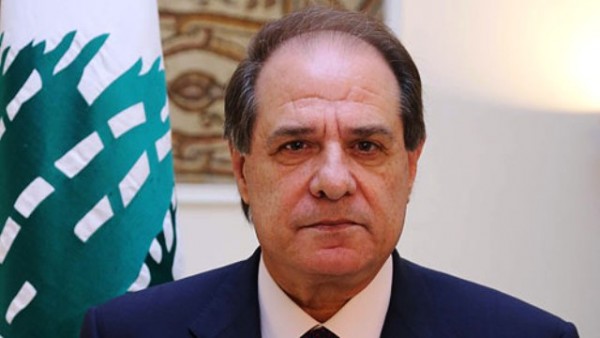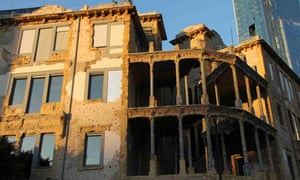
Daily Star.com.lb BEIRUT:
The Labor Ministry Thursday vowed to protect the Lebanese workforce,
warning that it would take legal action against the recent dismissal of
Lebanese employees working for international companies in the country.
In a statement, the ministry said it had recently received requests from
international organizations wishing to fire hundreds of Lebanese
nationals. These organizations included Relief International, service
company OSSC, Awtar restaurant, Save the Children and the Danish Refugee
Council. “Last week, the ministry received requests from Save the
Children and the Danish Refugee Council in Lebanon to let go of a large
portion of their Lebanese workers without giving any reasons,” the
statement said. It added that Save the Children had already dismissed
280 Lebanese from a total of 585 workers and the Danish Refugee Council
had fired 386 Lebanese from its 728 workers. The ministry said that
hotels were also letting go of their Lebanese workforce. The Labor
Ministry condemned what it said was a “deliberate replacement of
Lebanese workers” with foreigners, particularly Syrian nationals,
warning the organizations of taking necessary legal measures to protect
the Lebanese labor force.

by Joseph A. Kechichian, Senior Writer Gulf News
Beirut: Phalange Party leader Sami Gemayel pulled two ministers out
of Prime Minister Tammam Salam’s cabinet, as Sejaan Qazzi (Labour) and
Alain Hakim (Economy) joined Ashraf Rifi (Justice), who quit on February
21 to protest cabinet procrastination in referring the case of former
Minister of Information Michel Samaha to the Judicial Council.
“The
Phalange Party has decided to resign from the government because
Lebanon needs a ‘positive shock’,” Gemayel affirmed at a carefully
staged press conference, and rejected what he termed “cabinet
mechanisms” that stifled objections, which apparently prevented classic
deal-makings.
Flanked by Qazzi and Hakim, Gemayel attacked
ministers who, he claimed, were not concerned with the protection of the
banking sector against regular verbal attacks — presumably by Hezbollah
officials against Central Bank Governor Riad Salameh — and showed
little interest in the plan submitted by the Minister of Economy to
revitalise the sector. Gemayel did not mince his words when he declared
that ministers “are only concerned with passing suspicious deals,” which
may have been in reference to the waste disposal solution that was
agreed to after an eight-month-long ordeal that left Beirut and Mount
Lebanon reeking in garbage.


by Alexandra Talty, When the Hells Angels arrived in Beirut this spring, they showed up at
the Four Seasons, located in the upscale neighborhood of Zaytouna Bay,
whose clean and empty streets are sprinkled with high-end hotels and
swim clubs. The unlikely setting was the site of the Harley-Davidson
Owner’s Group (HOGs) annual general assembly. Given Harley-Davidson’s
appeal to the upper middle class, the Four Seasons was not an unusual
location for a HOGs event, but few expected the presence of the world’s
most notorious motorcycle club.
Marwan Tarraf, the 47-year-old founder of Lebanon’s first Harley
dealership, recognized the outlaws instantly because of their signifying
tattoos and heavy chains. Approaching three “full-time” Angels, whom he
assumed were Germans of Lebanese descent, he asked why they were there.
When Angels expressed interest in opening a chapter in Beirut, he
explained a few things about the country to them.
“It would be like going to Somalia and trying to start an outlaw
group,” Tarraf tells me. “There are militias with 10,000 armed men in
them. The rulers of those militias are basically ruling the country.”
From a spate of trendy repair shops to the plethora of biker bars,
motorcycles are having their moment in Beirut. What began as a few men
in the 1970s and 80s drawn to the abandon of the road and the freedom of
a world outside of politics has now become a subculture in its own
right.

TheGuardian, by John Brunton – Despite being in a conflict zone, Beirut is somehow rising like a
phoenix from the ashes. The past 12 months have seen the reopening of
the Sursock Museum,
a contemporary art gallery supervised by renowned French architect
Jean-Michel Wilmotte, and the inauguration of Aishti, a cutting-edge art
foundation that rivals the Punta della Dogana in Venice. In September,
the doors will open to Beit Beirut (beitbeirut.org), a museum and arts centre dedicated to the memory of decades of conflict.
It’s housed in an imposing neo-Ottoman villa on the former “green
line” between Muslim and Christian Beirut and served as a sniper bunker
during the civil war. Its crumbling, half-destroyed state has been
deliberately preserved, complete with bullet holes and shell pockmarks.
Youssef Haidar, the architect of the project, says: “The new museum will
hopefully be a step towards replacing the mass amnesia here for what
has happened in the past, so that we can come to terms with our
uncertain, but promising and wishful future.”
These new museums are just a small part of what is happening in the
Lebanese capital. While the guidebooks talk up luxury hotels and haute
couture in the restored downtown area, a host of bars and restaurants,
local designer boutiques and art galleries are popping up in the more
bohemian neighbourhoods of Mar Mikhael, Badaro and Gemmayzeh.

PARIS — The designer Karen Chekerdjian
is known in her native Lebanon for modernist objects made with
traditional materials and techniques. Now, two exhibitions in Paris — at
the Institut du Monde Arabe and at the private Dutko Gallery
— offer a close look at an artist who addresses the divide between art
and function, and the wider gap between Western and Arab cultures.
The
show at the Institut du Monde Arabe, “Respiration,” opened on May 30
and runs until Aug. 28. The exhibition at the Dutko with the same title
closed on Sunday, with pieces offered for sale through August.
“The
idea was to show the positive elements of the Arab world,” said
Philippe Castro, the chief adviser to Jack Lang, the president of the
institute and a former French culture minister. “Today, that can only be
shown through Arab art. There is real creativity coming out of the Arab
world, especially Lebanon. Given the geopolitical context, we felt it
was important to give a voice to this narrative.”

Lebanese authorities said Monday that a bomb blast the previous day that
damaged the headquarters of Lebanon’s second biggest bank specifically
targeted that financial institution. However, Interior Minister Nouhad Machnouk warned against casting blame before an investigation is finished.
Reuters, A powerful bomb has exploded outside the headquarters
of the Lebanese Blom Bank in central Beirut, causing damage and injuries
but no fatalities, the Interior Minister said.
Key points:
- Lebanon’s banking sector has been at centre of US financial attack against Hezbollah
- Blom Bank has closed accounts belonging to members of Hezbollah
- Interior Ministry says its clear the bank itself was the target
There were no immediate claims of responsibility.
The
Lebanese banking sector has been at the centre of an escalating crisis
since the United States passed a law targeting the finances of
Hezbollah The powerful Shiite Muslim group has launched verbal attacks on the central bank over the implementation of the act in Lebanon. Blom Bank is one of the banks that has closed accounts belonging to people suspected of links to Hezbollah.

by Pamela Engel, Business Insider
The terrorist group ISIS has claimed responsibility for another
massacre – an
attack on a gay nightclub in Orlando that killed at least 50
people. The shooting was
the deadliest in US history. The suspected gunman,
29-year-old Omar Saddiqui Mateen, reportedly
pledged allegiance to ISIS (also known as the Islamic State,
ISIL, or Daesh) in a 911 call.
After news outlets reported this, the ISIS-affiliated Amaq agency
released a statement on its online propaganda channels claiming
the attack. But the statement differed from those released after other
ISIS-claimed attacks in Paris and Brussels. In the Amaq statement
released Sunday, the ISIS link to the Orlando attack was
attributed to a “source.” The brief statement also did not
describe or provide any details about the attack.
While the Paris and Brussels attackers had direct ties to ISIS
leaders, it’s unclear how closely Mateen is connected to the
group. Michael Horowitz, a geopolitical and security analyst at the
Levantine Group, a Middle-East based risk consultancy, told
Business Insider that so far, there’s nothing “that even remotely
proves the attacker was in contact with ISIS.”

Last month, the Israeli company that was authorized to drill in the $320 million Hatrurium oil reservoir in the Dead Sea confirmed that the find sat completely within the Israeli maritime zone. Some estimates say that when drilling starts, the crude oil and gas recovered from the well could make the net energy-importer Israel completely energy independent, especially since the country authorized Houston-based Noble Energy and Israeli partner Delek to develop the massive Leviathan gas field—an offshore play located in the increasingly prolific Levant basin of the Mediterranean Sea. Israel shares access to the basin—estimated by the 2010 United States Geological Survey to hold 1.7 billion barrels of recoverable oil—with Lebanon, Syria and Cyprus.
Earlier this year, Cyprus offered licensing tenders for 12 blocks of maritime space in the basin.The Syrian Civil War and the infiltration of the Islamic State and
other terrorist groups have kept Syria too occupied to think about
pricey new offshore drilling ventures. But what has been keeping Lebanon from reaping the benefits of the “underexplored” oil in the sea right in its backyard?

Nabatieh, Lebanon – Nabatieh, the sleepy city in southern Lebanon with a small-town feel, is going through a cinema renaissance.
Once a local cultural capital, Nabatieh has been
without a theatre since Stars Cinema closed in 1990 amid the Israeli
occupation of southern Lebanon. By the end of this year, however, the
city will boast two cinemas. One will be new: Empire Cinema, part of a
multinational chain, is set to showcase big-budget Hollywood films. The
other will be old: Stars Cinema, now derelict, is being renovated by a team of volunteers led by actor and theatre manager Kassem Istanbouli.
The theatre will hold its grand reopening in August, and
plans to feature classic Arabic films alongside free theatre and
photography training workshops. Istanbouli and his team of volunteers say they hope the
reopening of Stars Cinema will revitalise the cultural life of the city,
which has stagnated in recent years.

MOSCOW,
June 10. /TASS/. Lebanon wants to export its wines to Russia and is
interested in expanding fruit exports, the press service of the Russian
ministry of agriculture said on Friday after talks between Russian
Agriculture Minister Alexander Tkachev and his Lebanese counterpart
Akram Shuhayib.
We
plan to look at a possibility of exporting Lebanese wines to the Russian
market. We are also interested in expanding exports of fruits, in
particular apples and grapes,” the press service quoted the Lebanese
minister as saying.
Tkachev, in turn, said that Russia is interested in expanding its
exports of plant products to Lebanon and plans to begin supplies of beef
and poultry. The Russian minister noted that the potential of
Russia-Lebanon trade is not used to the full. “We should maintain the
tendency of qualitative and quantitative growth in trade volumes,”
Tkachev said.



